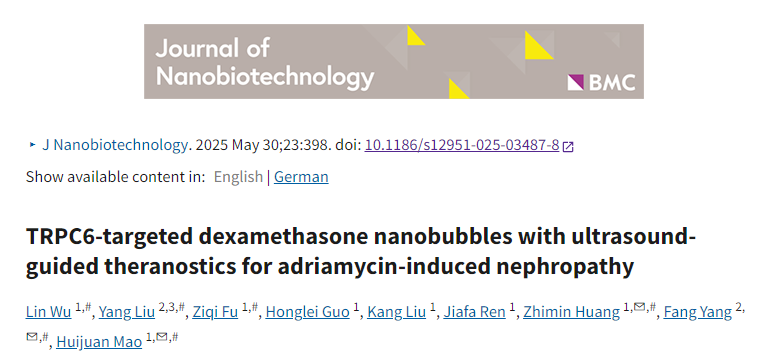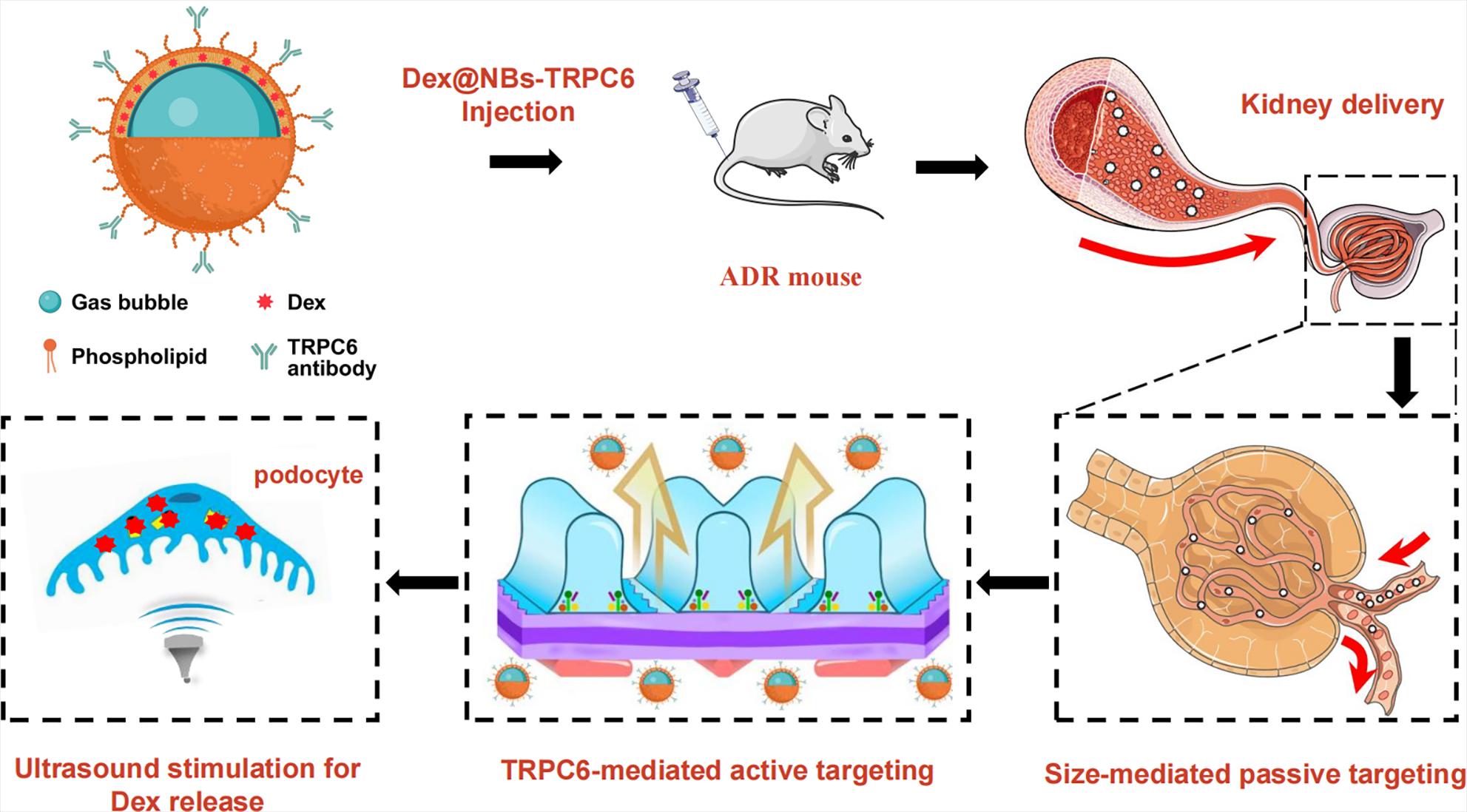A research team led by Professor Huijuan Mao from the First Affiliated Hospital of Nanjing Medical University has developed a novel ultrasound-visible nanobubble therapy for targeted treatment of adriamycin-induced nephropathy. Their findings have been published in Journal of Nanobiotechnology titled “TRPC6-targeted dexamethasone nanobubbles with ultrasound-guided theranostics for adriamycin-induced nephropathy”. The team engineered a multifunctional nanobubble system, Dex@NBs-TRPC6, that combines passive targeting (via size), active targeting (via TRPC6 antibody), and ultrasound responsiveness. This design enables precise delivery of dexamethasone to the kidneys, real-time ultrasound imaging, and effective treatment monitoring. The approach significantly improves therapeutic outcomes while reducing systemic side effects, offering a personalized and non-invasive strategy for nephrotic syndrome.

Glucocorticoid (GC) intolerance and systemic toxicity present significant hurdles in the treatment of primary nephrotic syndrome (PNS), making the development of targeted therapies that maximize efficacy while minimizing adverse effects an urgent priority.. The research team designed a multifunctional nanosystem, Dex@NBs-TRPC6, based on polyethylene glycol (PEG)-modified lipid vesicles. This system encapsulates dexamethasone (Dex) and is conjugated with TRPC6-specific antibodies for precise podocyte targeting.
This study's major breakthroughs involve precision targeting and treatment efficacy In vitro experiments demonstrated superior anti-inflammatory and anti-apoptotic effects compared to free dexamethasone or non-targeted nanobubbles. In the following mouse models, Dex@NBs-TRPC6 at half the standard dose effectively reduced proteinuria, kidney inflammation, apoptosis, and fibrosis. It also suppressed gluconeogenic gene expression (PCK1, G6PC), minimizing metabolic side effects.
Moreover, this novel therapy allows the real-time monitoring for the treatment process, thanks to the nanobubbles' acoustic properties. This work addresses a major clinical challenge in treating primary nephrotic syndrome—glucocorticoid intolerance and systemic toxicity—by offering a more targeted and safer alternative.

This study was collaboratively completed by the Department of Nephrology at the First Affiliated Hospital of our university and the School of Biological Science and Medical Engineering at Southeast University. Co-first authors are Dr. Lin Wu, Dr. Yang Liu, and graduate student Ziqi Fu. Corresponding authors include Prof. Huijuan Mao, Prof. Fang Yang, and Assoc. Prof. Zhimin Huang. This research was funded by the National Natural Science Foundation of China (Original Exploration Program Project).
(Contributed by: Prof. Huijuan Mao's Research Group; Translation revised by Wu Wenbo)



